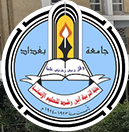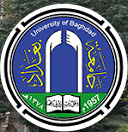Abstract
This study deals with the structure of description and the meaning of symbols in the novel “The Granada Trilogy” by Radwa Ashour, whose novel revealed creativity and beauty in description. After studying this novel, it becomes clear to us that the figurative vision in the writer’s speech, including its description and symbolic connotations, took on a formative and intellectual dimension in which “Ashour” searches for ideological connotations, relying in doing so on intellectual connotations, and this is what we observed in the novel “The Granada Trilogy.” So, “Ashour” relied on a cosmetic technique in a spontaneous way in her narratives, perhaps to distance the reader from the false and boring reality, and for this reason realism was included and took its course within the folds of the narrative. As for the symbol, it helped us as readers to think primarily about the meanings of the story, and about defiance and steadfastness on the one hand, and in the face of every attack and every tyrant on the other hand, by taking into account the meanings of the actions and their symbolism, especially since the symbol is a formative part that comes from within the creative writer himself.
Article Type
Article
First Page
86
Last Page
105
Publication Date
3-15-2024
Creative Commons License

This work is licensed under a Creative Commons Attribution 4.0 International License.
Recommended Citation
Mohtadi, Hussein; Abdullah, Fatima; and Qomaheh, Mofeed
(2024)
"The structure of description and the significance of symbols in the narrative discourse of "Radwa Ashour", the novel "The Granada Trilogy" as an example,"
Alustath Journal for Human and Social Sciences: Vol. 63:
Iss.
1, Article 11.
DOI: 10.36473/4x9kw140
Available at:
https://alustath.researchcommons.org/journal/vol63/iss1/11










